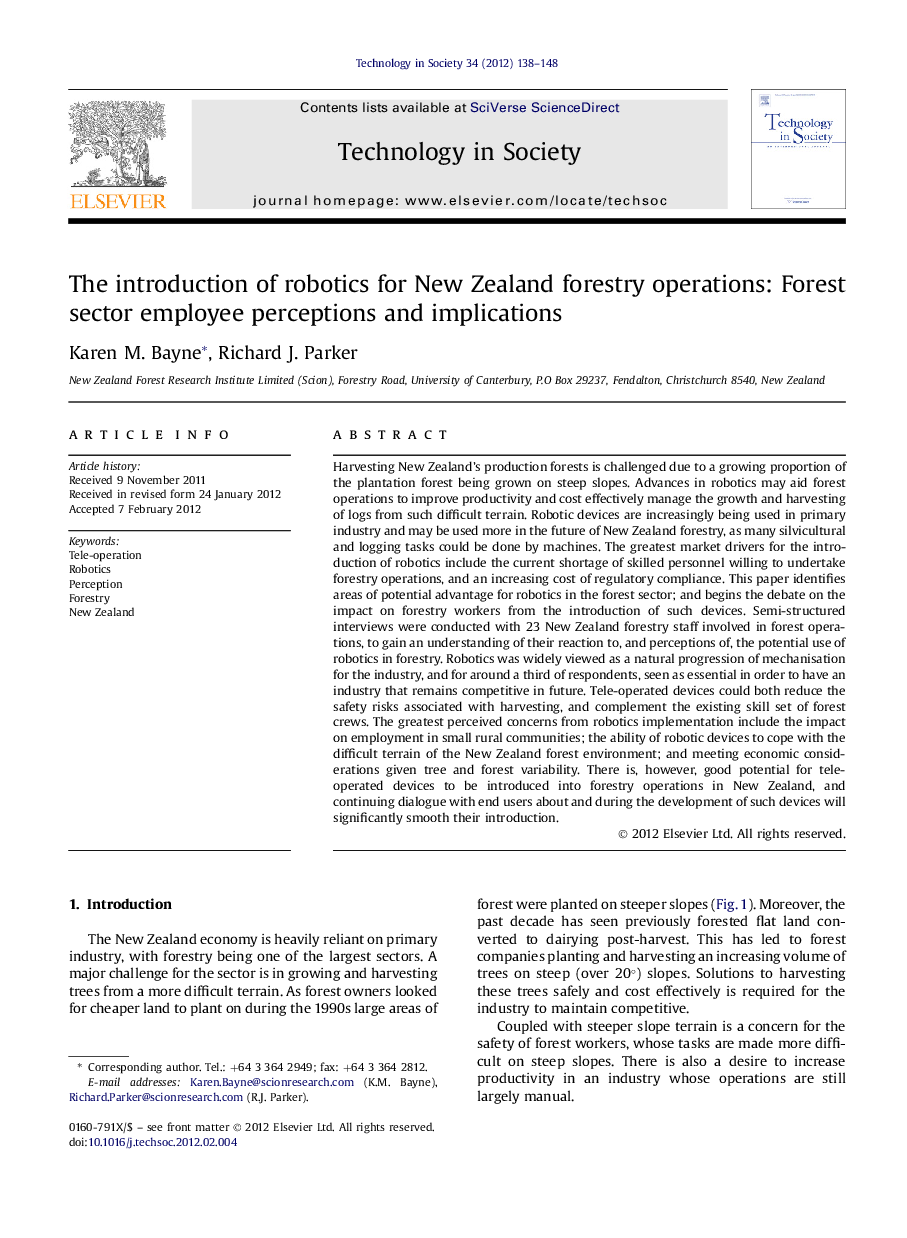| Article ID | Journal | Published Year | Pages | File Type |
|---|---|---|---|---|
| 375337 | Technology in Society | 2012 | 11 Pages |
Harvesting New Zealand's production forests is challenged due to a growing proportion of the plantation forest being grown on steep slopes. Advances in robotics may aid forest operations to improve productivity and cost effectively manage the growth and harvesting of logs from such difficult terrain. Robotic devices are increasingly being used in primary industry and may be used more in the future of New Zealand forestry, as many silvicultural and logging tasks could be done by machines. The greatest market drivers for the introduction of robotics include the current shortage of skilled personnel willing to undertake forestry operations, and an increasing cost of regulatory compliance. This paper identifies areas of potential advantage for robotics in the forest sector; and begins the debate on the impact on forestry workers from the introduction of such devices. Semi-structured interviews were conducted with 23 New Zealand forestry staff involved in forest operations, to gain an understanding of their reaction to, and perceptions of, the potential use of robotics in forestry. Robotics was widely viewed as a natural progression of mechanisation for the industry, and for around a third of respondents, seen as essential in order to have an industry that remains competitive in future. Tele-operated devices could both reduce the safety risks associated with harvesting, and complement the existing skill set of forest crews. The greatest perceived concerns from robotics implementation include the impact on employment in small rural communities; the ability of robotic devices to cope with the difficult terrain of the New Zealand forest environment; and meeting economic considerations given tree and forest variability. There is, however, good potential for tele-operated devices to be introduced into forestry operations in New Zealand, and continuing dialogue with end users about and during the development of such devices will significantly smooth their introduction.
► Robotic introduction was viewed positively by respondents. ► Respondents thought robots would reduce harvesting safety risks and complement the existing skill set. ► Impacts on small rural towns and coping with forest terrain were robot uptake concerns. ► Addressing these social and market risks early in development will smooth introduction.
